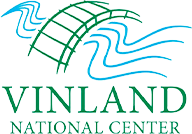
When someone you love is fighting an addiction, it doesn’t only affect them, but it also affects you. Many times, the family is overlooked during the recovery process, but they need support too. Sometimes, loved ones become co-addicts as well. This means that while they don’t share the actual addiction to drugs or alcohol, they live in a negative space by “placing a lower priority on one’s own needs, while being excessively preoccupied with the needs of others.”
The key word in a co-addiction discussion is ‘enabler’. It’s easy to want to make excuses for and always support your love ones during addiction and/or recovery, but there’s a point where they have to take control of their own lives.
Families dealing with addiction have been shown to have some of the following symptoms:
- Anxiety
- Depression
- Panic disorder
- Suicidal tendencies
The best way to thwart these problems is to reach out for help. There are many resources available including a clinical psychologist, support group, religious or spiritual leader, addiction specialis, or family doctor.
Rick Krueger, clinical services manager at Vinland and director of the organization’s Family Program, explains the importance of resiliency as well as: “The use of discipline in a positive, guiding way and the importance of play from a developmental perspective. The importance of reducing stress and self-care for the child-care provider.”
With the right approach, addiction treatment for your loved one doesn’t have to bring you down, and instead, you can help lift them up.
Source: addictionblog.org
